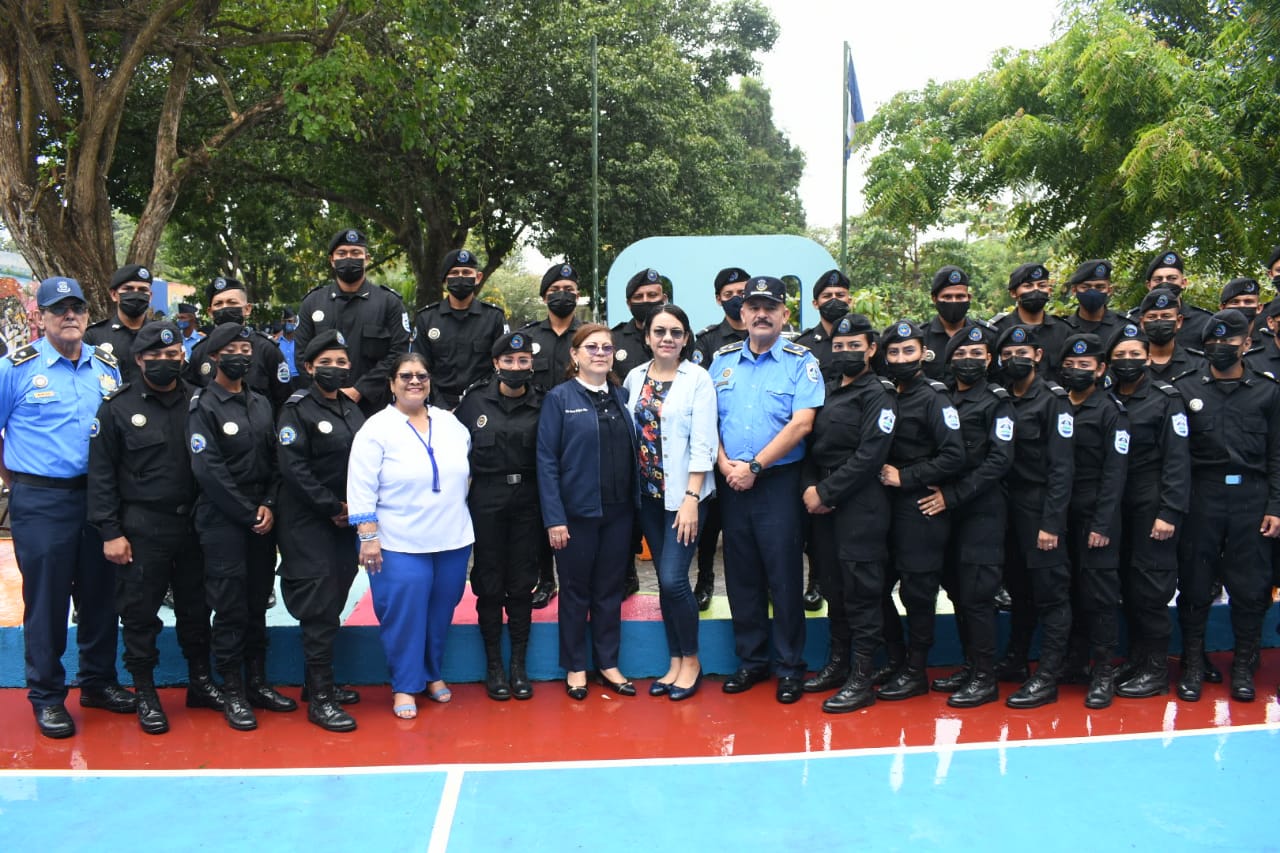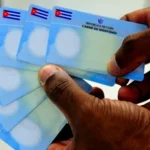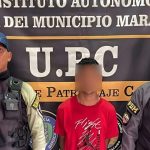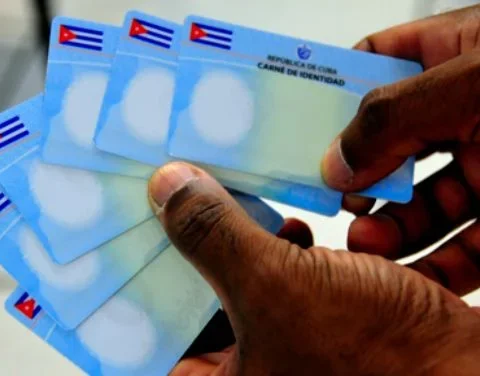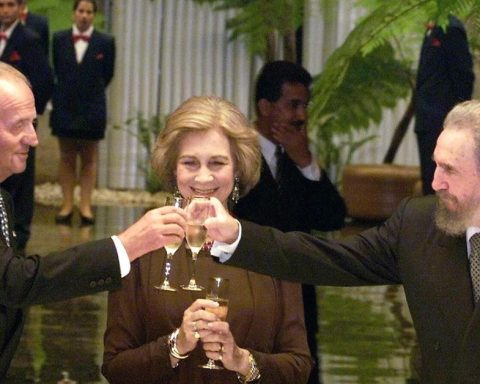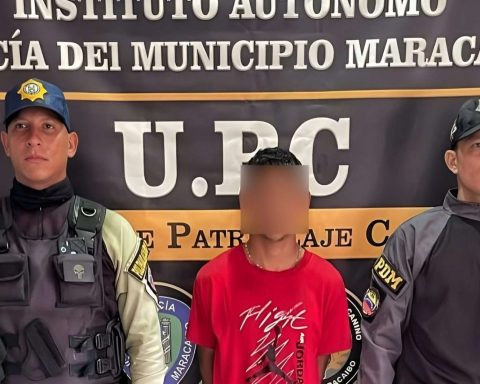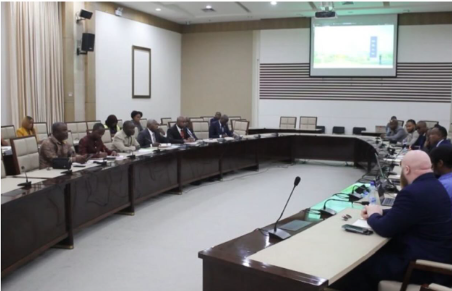The Daniel Ortega regime inaugurated this Saturday, February 25, the Leonel Rugama University of Police Sciences at the Camilo Ortega Technological Center, located in the indigenous neighborhood of Monimbó, one of the most repressed areas during the April 2018 Rebellion, after rise up against the dictatorship of Daniel Ortega.
Before an audience full of police officers from different specialties, the National Education Commission, made up of the Ministry of Education, the National Technological Institute (Inatec), the National Council of Universities (CNU), and the police headquarters, represented by the general commissioner in retirement, Horacio Rocha – also a security advisor with ministerial rank to Daniel Ortega – and the general commissioner, Jorge Cairo Guevara, director of the Walter Mendoza Police Academy, launched four virtual programs, aimed at police officers.
The first is the “Angelita Morales Avilés” technical and technological training program; the Online High School, “Georgino Andrade”; and the “Doctor Julio Briceño Dávila” University of Medical Sciences and Nursing, whose objective is to train more than 630 Police officers, according to media related to the Government.
The inauguration of this academic offer took place within the framework of the 45th anniversary of the Monimbó insurrection against the Somoza dictatorship, on February 26, 1978. In this sense, the vice president, Rosario Murillo, pointed out last Wednesday, February 22, 2023 that The police university bears the name of Leonel Rugama-ex-Sandinista guerrilla-, whose cry “still resonates in our hearts, and will always resound: Let your mother surrender! because here nobody gives up. Here they could not. They won’t be able to here. Here we are full of homeland (…) ”, she expressed.
This university will offer a degree in Police Sciences, a Police Degree with a mention in Criminalistics, a Degree in Police Sciences with a mention in road safety and accidentology, a Degree in Police Sciences with a mention in prevention, citizen and human security, listed the president of the CNU, Ramona Rodríguez.
These training programs were launched a little more after a month than the Ortega regime detain the general commissioner Adolfo Marenco Corea, former deputy director of the National Police, revealing “fissures” in the circle of “trust and loyalty” of Daniel Ortega and Rosario Murillo, according to sociologist Elvira Cuadra, an expert in security issues.
The imprisonment of Marenco in the Judicial Assistance Directorate (DAJ), known as El Chipote, “marks a milestone” in the relationship between the presidential couple and the Police, since it warns the other police commanders that what happened with the Former deputy director, “it can happen to anyone,” said the specialist in January.
Photo: Technological Institute
Strengthen police indoctrination
From the perspective of the opposition member, Ivania Álvarez, these educational programs aimed at police officers pose an ideological indoctrination, with the aim of training “professionals attached to the regime, who defend it and are committed to the model of the Ortega-Murillo family.” considered.
Álvarez’s assessments coincide with the speech of Ramona Rodríguez, who pointed out that the new university seeks to “guarantee the professionalism of the National Police by training applicants and comprehensive police officers with scientific-technical and technological skills, with ethics, a vocation for service to the communitypolitically and ideologically committed to the model revolutionary”.
For his part, Álvarez explains that the Police also faces difficulties in recruiting more agents for conviction, since in most cases, especially in the countryside, young people join the institution not to serve the community, but to make sure a job and a salary. Another of the problems facing the institution, which has been accused of committing crimes against humanity, is the enormous corruption that has reached its highest command.
The opponent Juan Diego Barberena considers that the regime seeks to “distort historical memory”, suppressing the events related to the Monimbó rebellion in 2018, but highlighting the historical feat of 1978 against another dictatorship. “It is the distortion of the historical narratives of the collective memory about what has happened in the recent history of the country”, he expressed.
Masaya is one of the cities in the country that lives under constant police surveillance in its neighborhoods and through police patrols. For Álvarez, the fact that this new Police University is in Masaya implies that the regime recognizes the site as a “bastion of struggle” and knows that to change it it must start with the youth, guaranteeing that there is no type of rebellion again.
